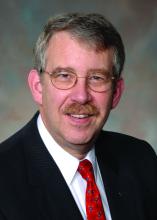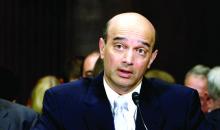Officials at the Centers for Medicare & Medicaid Services are launching a new initiative aimed at reducing administrative burdens for physicians who participate in certain value-based payment models.
Under an 18-month pilot, providers practicing within certain Advanced Alternative Payment Models (Advanced APMs) will be relieved of additional documentation scrutiny under Medicare medical review programs, according to an Oct. 13 CMS announcement. As part of the effort, the agency will direct Medicare Administrative Contractors and Recovery Audit Contractors to consider doctors participating in Advanced APMs as a low-priority for postpayment claim reviews.
CMS Acting Administrator Andy Slavitt said the goal is to reshape the physician experience by reviewing regulations and policies to minimize administrative tasks and seek other input to improve clinician satisfaction.“As we implement the Quality Payment Program under [the Medicare Access and CHIP Reauthorization Act of 2015], we cannot do it without making a sustained, long-term commitment to take a holistic view on the demands on the physician and clinician workforce,” Mr. Slavitt said in a statement. “The new initiative will launch a nationwide effort to work with the clinician community to improve Medicare regulations, policies, and interaction points to address issues and to help get physicians back to the most important thing they do – taking care of patients.”
The pilot will have two phases, beginning in early 2017, and will include Advanced APMs, Next Generation Accountable Care Organizations, Medicare Shared Savings Program Track 2 and Track 3 participants, Pioneer Accountable Care Organizations, and Oncology Care Model two-sided track participants.
While participating physicians will be considered a low priority for auditors, they will still be subject to existing oversight from other review programs, such as Zone Program Integrity Contractor reviews, Office of the Inspector General and U.S. Department of Justice cases, and quality-reporting reviews conducted as a result of abusive billing evidence, according to CMS.As part of the program, clinicians will be engaged in regional discussions with CMS regarding documentation requirements and their interactions with the agency. To that end, each of the 10 CMS regional offices will oversee local meetings to gather feedback from physician practices within the next 6 months and conduct regular meetings thereafter. The local meetings will result in a report with targeted recommendations to the CMS Administrator in 2017.
The American Medical Association praised the effort to reduce regulatory burdens.
“Acting Administrator Slavitt is leading a timely effort to be responsive to physicians’ concerns,” AMA President Andrew W. Gurman, MD, said in a statement. “We look forward to working with CMS on this initiative so all physicians can spend more time on patient care and less time on paperwork.”The American College of Physicians also applauded the initiative, but said the initiative should be expanded to include other advanced APMs, such as the Comprehensive Primary Care Plus program, Nitin S. Damle, MD, the college’s president, said in a statement.
“It is critical to us that this initiative be conducted in addition to – not in lieu of – other needed reforms to reduce burdensome administrative tasks and simplify MACRA implementation,” Dr. Damle said.
On Twitter @legal_med




